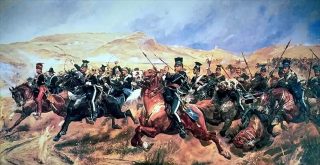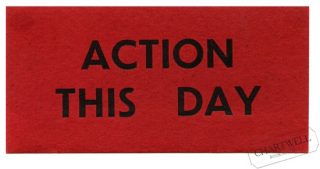
Well, Geoff Colvin certainly thinks so and I agree with him. But first, let me explain what I mean by “talent.” This is a word that gets thrown around a lot, especially in our field. When I say “talent is overrated” I’m referring to “talent” as the innate (some would say God-given) ability, granted to us at birth, that confers an advantage over others lacking such ability. We often hear the word “talent” used in this way when describing musicians, athletes or chess players who achieve what appears to be a miraculous level of greatness at an early age.
In Geoff Colvin’s book, “Talent is Overrated,” he describes a study whereby researchers polled education professionals and more than 75% of them:
…believed that singing, composing and playing concert instruments requires a special gift or talent.
I’m guessing a similar poll of business professionals would reveal that many people attribute business success to some innate talent or gift. Warren Buffet promotes this myth when he says; “I was hardwired at birth to allocate capital.” I’m sure people would also attribute practice and experience as important factors for achieving greatness, but talent is often the overriding factor cited by others.
So when in 1992 a group of researchers in England went looking for musical talent, I’m sure they fully expected to find it…but they didn’t. After extensive research (see Chapter Two in Colvin’s book, it’s very convincing), they could find no evidence of some innate talent propelling certain musicians to the best schools and performances. What then does it take for young British concert musicians to achieve grade 5, a highly refined and objective achievement? The answer is, simply, 1,200 hours of practice. That’s it. No magic, just practice.
This finding turns up again and again across all disciplines and sports. Malcolm Gladwell spends considerable time on this subject in his book, “Outliers” where he also debunks the myth of talent. Even when you look at child prodigies like Mozart or Tiger Woods, one finds that they achieved true greatness only after consistently logging at least 10,000 hours of deliberate practice.
So it’s not talent at all. The key to becoming world-class, whether in business, music or sports, is 10,000 hours of deliberate practice. Most of us have spent way more than 10,000 hours at work, so why haven’t we all achieved greatness? The answer is that just spending time at work is much different than deliberate practice. It turns out, deliberate practice is difficult, extremely uncomfortable and mentally demanding. It’s not much fun and there are very few who are willing to endure what it takes to log 10,000 hours of deliberate practice. Thus, only a select few make it to the very top.
What if we could unlock the secret to deliberate practice and clear the way for more of our employees to achieve true greatness?
In my next entry all explore the concept of “deliberate practice” and what it can teach us about developing great leaders in business.



Must we choose … why not both? If leadership is an innate talent it can be enhanced and/or become more effective by deliberate practice. Sports analogies are the best at demonstrating what happens when innate talent marries deliberate practice; it’s how Michael Jordan achieved success and excellence at his game. Furthermore, I believe that innate talent will atrophy if it is not practiced. Let’s not forget the importance of an environment that nurtures innate talent and facilitates opportunities for deliberate practice.
Rachel Grace
[…] attribute of high performers in sports, music and chess is not talent, as is so often assumed, but 10,000 hours of deliberate practice.